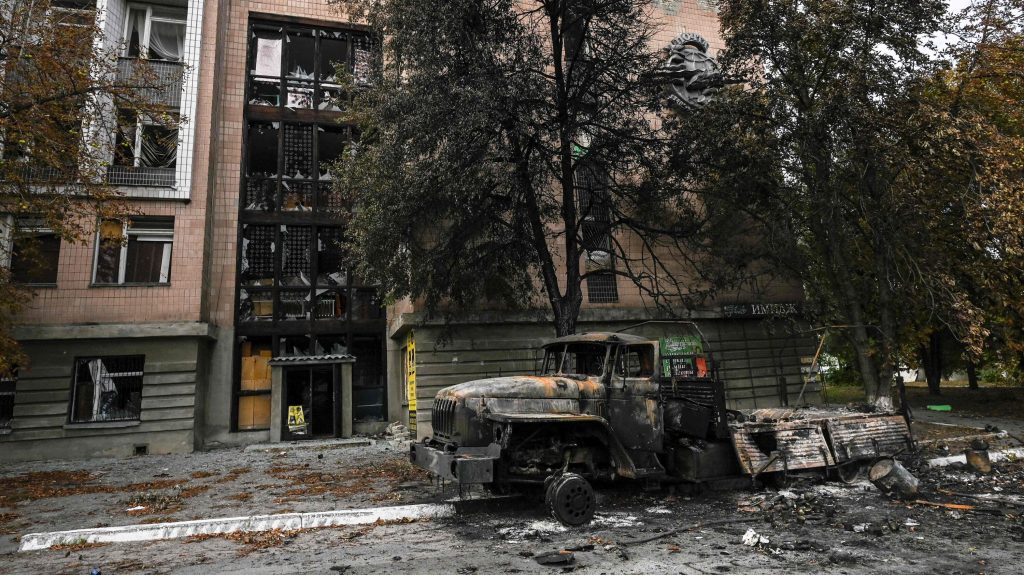WARLORDS OF THE MEDIA

by Ralph Berry
‘One and all, bag and baggage, shall, I hope, clear out from the province they have desolated and profaned.’ –Gladstone’s Midlothian campaign rhetoric on the Bulgarian atrocities is not matched by today’s media. But the message is the same–for ‘Turks’, read ‘Russian’, for ‘Bulgaria’, read ‘Ukraine’. Much of the media retain the same absolutist line. Here is the normally excellent Simon
Heffer: ‘There can be no negotiations; we must do all we can to ensure Ukraine prevails, however uncomfortable we might get in the process.’ The Ukrainians are going to get a deal more uncomfortable, but the chateaux media are safe in their convictions. Another columnist, a former infantry commander, sees peace talks as a threat to European unity. That ‘unity’ is a figment of the imagination.
For Fraser Nelson, editor of the SPECTATOR, ‘a fight is on for democracy [whose?] and that is in a very real sense, a shared battle.’
No, it isn’t. You would think that a man in Nelson’s position would know that ‘in a very real sense’ is a mocking, satirist’s phrase that belongs to PRIVATE EYE. The UK commitment to Ukraine arose because Boris Johnson took off to Kiev (thrice), making him the champion of their cause and soul-mate to Zelensky, whom he invited to address the Commons on Zoom. The British people were not consulted. Later Prime Ministers, Truss, then Sunak, were caught up in the same policy, which is a trap. Britain is now committed to that weasel word ‘prevail’ which will enable our leaders to claim whatever outcome arises as the deep success of policy. It will entail negotiations, something that the Zelensky administration will have no truck with, as yet.
Russia began the war with a Schlieffen plan, a sharp attack on Kiev leading to a quick knock-out and a short war. It failed like the original. Now Putin states that Russia is ‘in it for the long haul’, which I consider a totally truthful account of his policy. The implications for Ukraine are not good.
General Sergey Surovikin, the Russian commander, is given a highly respectful review in the TELEGRAPH (11 December). The senior policy researcher at the Rand Corporation thinks him ‘probably the most competent commander Russia has put in place so far.’ When he pulled out Russian forces from Kherson, the media failed to recognize that retreat is not the same as defeat. (Wellington said ‘the mark of a great general is to know when to retreat, and to do it.’) Kherson is now battered daily by the Russian artillery, with hundreds of missiles and drones hitting civilian infrastructure. The Ukrainians complain that they have a tenth of the shells available to the Russians, and they are dependent on other countries to supply them. But the total aid cost is vast, and the countries that have to provide it are feeling the pinch. They have their own economic problems, and are restive at the unending war they are to support. Britain has its ‘host family’ problems with Ukrainian refugees, now that the six-month guarantee has ended. Macron especially, whose country has historic ties with Russia, is no kind of hawk for Ukraine. While the Ukraine polls show strong backing for justice over peace; in Germany, France and Italy, the majority favours peace over justice. The longer the ‘long haul’ goes on, the less inclined these nations will be to continue unlimited pro-Ukraine policies.
Putin’s aim, of course, is to sap the morale of the Ukrainian people and force them to welcome negotiation. We are told that the unyielding will of the Ukrainian people is for war till victory.
Really? It can be seriously argued that the decisive factor in the collapse of Germany in the later stages of WW1 was the Royal Navy.
The merciless blockade on Germany meant that the civilian population suffered great hardship, which the fighting men at the front were fully aware of. Norman Stone records a telling moment on 18 July, when the Kaiser at the headquarters town of Spa in Belgium, asked Ludendorff what had gone wrong, and Ludendorff said that the men were just not fighting anymore–thousands were surrendering. No such dramatic failure can be looked for in Ukraine. But the Ukrainian fighters are all Ukrainian, and their numbers are diminished all the time, especially if their leaders persist in a winter offensive against the Russian defensive lines. The Russians have the shadowy Wagner Group mercenaries to reinforce their Army, and they have outsourced much of the Ukrainian fighting to Wagner. The best account of Wagner I have seen is in the SYDNEY MORNING HERALD (9 October 2022). The main point is that Russian losses are not humanly co-equal with Ukrainian.
The drone war continues, on Russian terms. The planned Russian drone factory will be located in Tatarstan, central Russia, well beyond the range of Ukrainian drones and missiles. Meantime, the THE WASHINGTON POST reports that Russia has agreed to pay Iran for 6,000 drones. All will target the Ukraine infrastructure. The US authorities have made it clear that they will not permit the extension of the war beyond the Ukraine border, which must remain the arena of the conflict. The conclusion is clear: the war-cries of the media have no base in reality. The main obstacle to peace is the Zelensky government.